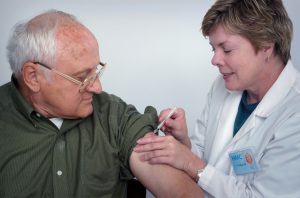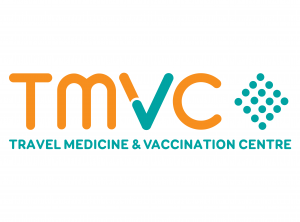Cruise travel is a great way to see many destinations while experiencing some rest and relaxation abroad. There are so many types of cruises and itineraries. Whether it’s a 5-day trip to the Caribbean, a cruise down the Amazon River in Brazil, or a 6-month world tour, there is a cruise for every type of traveller. Fortunately, cruise travel is usually a pretty low risk for travel-related illnesses, but cruises do come with certain health risks.
In this blog I’ll tell you about some health risks to consider and ways to stay healthy on your cruise. Keep reading to learn more about vaccines that are typically recommended for cruises. TMVC wants to prepare you for a safe and healthy cruise.
Respiratory Illnesses
The most common cruise ship illnesses are respiratory infections, including COVID-19, influenza, RSV, whooping cough, and pneumonia. A large number of people in relatively small spaces can lead to the ideal environment for the spread of these types of germs. Respiratory infections are spread through coughing, sneezing, singing, or even just talking. These germs can also be spread through touching contaminated objects, like ship railings, door handles, or elevator buttons. People with certain pre-existing health conditions and older adults over 65 years of age are at higher risk of complications from respiratory illnesses, including pneumonia, hospitalization, and even death. About 19% to 29% of visits to the cruise ship medical infirmary are due to respiratory illnesses.
Gastrointestinal Diseases
The second most common type of cruise ship illness is gastrointestinal (GI) infections. The most common GI outbreak is due to Norovirus, which accounts for 90% of GI outbreaks on cruises. Symptoms develop between 12 to 48 hours after exposure and include vomiting, diarrhea, stomach cramping, and fever. Symptoms of Norovirus usually resolve as quickly as they come on, about 12 to 48 hours later. Traveller’s diarrhea caused by various bacteria usually develops after eating off the ship at ports. Hepatitis A is also spread through contaminated food and water and could be a risk for those eating off the ship at ports.
Motion Sickness
Large, modern cruise ships have been designed to reduce motion sickness, so hopefully this means smooth sailing for your cruise. However, 10% to 25% of visits to the cruise ship medical centre are due to motion sickness.
Mosquito-Borne Illnesses
Unless you’re planning a cruise to Europe or Alaska, there’s a good chance you’ll visit a tropical or semi-tropical destination on your cruise. Mosquito-borne illnesses are a common risk for cruises to the Caribbean, Central and South America, Africa, Asia, and Oceana. The risks may differ depending on your destination but can include dengue fever, chikungunya, zika, malaria, yellow fever, and Japanese Encephalitis, to name a few.
 Ways to Stay Healthy on Your Cruise
Ways to Stay Healthy on Your Cruise
There are several things you can do to help stay healthy on your cruise:
Practice Good Respiratory Hygiene
-
Cough or sneeze into a tissue or elbow, not your hand.
-
Consider wearing a mask in crowded areas, or anytime you have symptoms of a respiratory illness.
Wash Your Hands
-
Regularly wash your hands with soap and water for at least 20 seconds (singing the “Happy Birthday” song while you wash your hands is a good way to know if you’ve washed for 20 seconds).
-
Use a hand sanitizer with at least 60% alcohol if soap and water are not readily available.
-
Wash your hands after touching high contact surface areas, like ship railings, elevator buttons, and buffet utensils.
-
Be sure to wash your hands before eating food or touching your face.
Avoid Being Bitten by Mosquitos When at Port
-
Minimize areas of exposed skin with long-sleeve, light coloured clothing. Consider purchasing permethrin treated clothing to wear on your trip if visiting ports with mosquito-borne diseases.
-
Use an insect repellent with 30% DEET or 20% Icaridin.
-
Avoid wearing strongly scented products.
 Get Vaccinated
Get Vaccinated
-
Reduce your risk of respiratory illnesses by getting vaccinated against pertussis (whooping cough), influenza, COVID-19, RSV, and pneumonia.
-
Consider getting vaccinated against hepatitis A if you plan to eat off the ship.
-
Consider taking Dukoral before your trip to reduce your risk of traveller’s diarrhea if you’re planning to eat off the ship.
-
Get vaccinated for yellow fever if you’re travelling to a risk area or if it’s required for country entry.
Book a Travel Consultation
The best way to know which vaccines are recommended for your age, health conditions, and specific cruise itinerary is to book a travel consultation at TMVC. The travel health consultant will advise which vaccines are recommended or required for your specific cruise itinerary (so please remember to bring your cruise itinerary to your appointment!). Simply give us a call at 1-888-288-8682 to book your travel consultation or book online.






 Ways to Stay Healthy on Your Cruise
Ways to Stay Healthy on Your Cruise Get Vaccinated
Get Vaccinated 